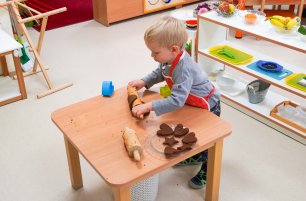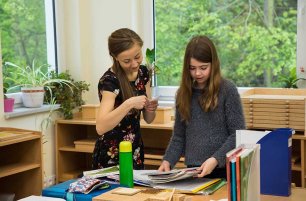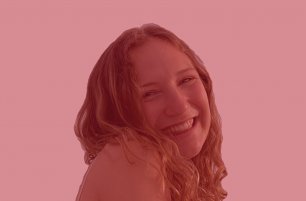Freedom and the Montessori Classroom
“To give a child liberty is not to abandon him to himself."
Montessori classrooms often receive two types of criticism. The first is that our students have too much freedom – “they do whatever they like!” – and the second is that they are not free at all: “all these poor children do is work!” Well, both can be true, our students often want to work. But we do have a very specific notion of freedom.
To us, freedom doesn’t mean chaos or doing whatever we please, anytime (what Dr. Montessori called “being a slave to one’s own impulses”). Rather, it means being able to set a goal and reach it, whether that goal is “I will learn Spanish and live in Madrid”, or “I will work with the pink tower material next.”

To be free to reach our goals, we need the capacity to weigh our options, the ability to make a choice and go through with it. In other words, freedom requires knowledge of our environment, the necessary skills, and the self-control to follow through. It is in the child’s nature to work hard to gain all three. As educators, we just need to give the opportunity.
Our toddlers have the freedom to wash laundry, because they can do it without flooding the classroom; our four-year olds have the freedom to practice hammering nails or using sharp knives because follow safety precautions. Our Elementary students have the freedom to put together their weekly work plans because they accept that they have to include necessary tasks as well as their favourites. As we grow in knowledge, skills and self-control, our freedom naturally grows too: gradually but inexorably.
“To let the child do as he likes, when he has not yet developed any powers of control, is to betray the idea of freedom.”
We don’t want our students to be quiet during their classroom work because they are not free to raise their voice. We want them to have the knowledge, the understanding, and the self-control to choose to speak in a low voice so as to be polite and not disturb their friends. We want children to learn that freedom isn’t the absence of rules and boundaries – there is no such thing, we are always tied by laws and rules. But freedom means willingly following rules that we accept and appreciate, and having the space to live a happy and productive life within them.
By Michaela Tučková / Toddler Teacher
Want to learn more? Read our next article:








